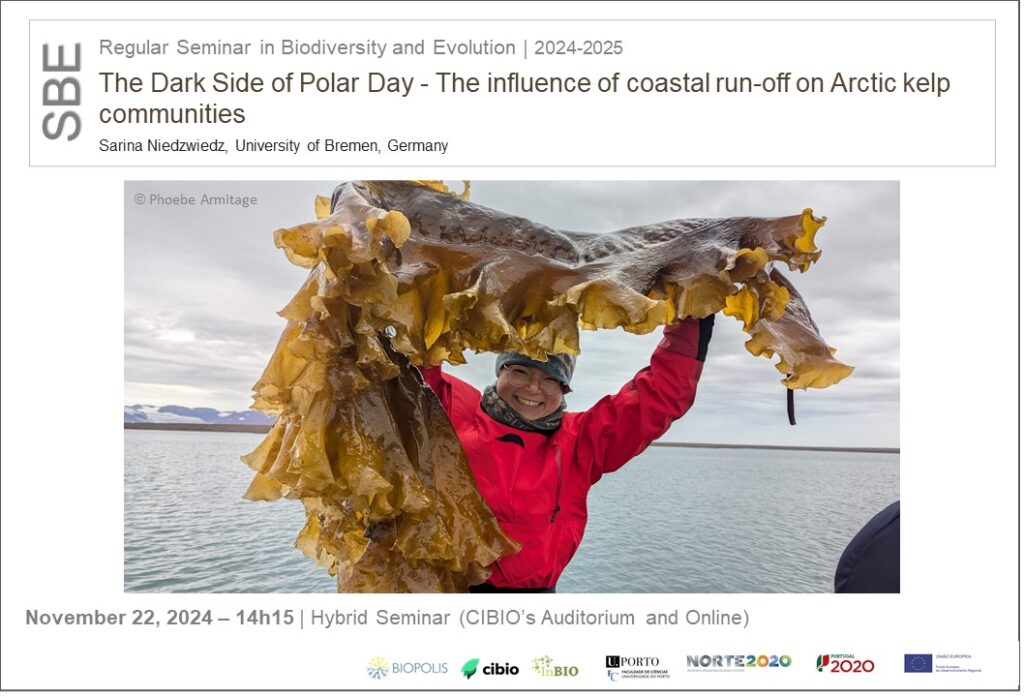The Dark Side of Polar Day – The influence of coastal run-off on Arctic kelp communities
Sarina Niedzwiedz, University of Bremen, Germany
November 22, 2024 | 14h15 | Hybrid Seminar (Zoom Link: https://videoconf-colibri.zoom.us/j/99797933081)

Ecosystem engineering kelp forests are subject to many rapid environmental changes in the Arctic. Since the 1980s, the rate of temperature rise is far beyond the global average. Consequently, glacial and permafrost melt are accelerating, leading to extensive run-off plumes covering fjords. Run-off plumes alter many water column parameters: e.g., high turbidity is changing the photosynthetically active radiation (PAR); terrestrial and lithogenic material alter element concentrations of the water. To be able to maintain a stable population, kelps have to acclimatise to these changes. The overarching aim of my doctoral thesis is to assess what defines the boundaries of the realised niche of Arctic kelp forests. In two in-situ monitoring studies, I found a high intraspecific variability in the biochemical composition of different Arctic kelp populations, being conditioned by their local environment. Hence, performance curves must not be considered static and experimental results have to be extrapolated with care. Investigating the in-situ effect of run-off on kelp holobiont functioning, I found run-off to change the elemental composition in kelps. This led to changes of the ecosystem services of kelp forests, such as their nutritious value for grazers. In two experimental studies, I found that the effect of temperature on kelps is highly interactive with the prevailing PAR availabilities. High-PAR availability caused drastic physiological stress, especially when interacting with cold temperatures. Reduced irradiance resulted in a shift of the kelps’ realised niche and a local loss of habitat for cold-temperate kelps in the Arctic. Concluding, climate change induced Arctic run-off, and especially varying PAR availability, has drastic consequences on the performance of kelps, with the potential to limit Arctic kelp distribution. A shift of the kelps’ realised niche has cascading ecological and economic consequences.
More information here